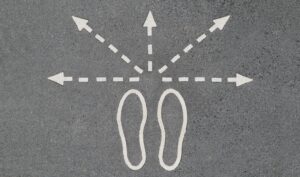Career transition or job loss is always an important life event but can have especially significant implications when it occurs in mid-life. And when you find yourself facing mid life job change during a global pandemic, there really are many important topics to think about!

There are many questions on your mind, including:
• Do you still want to work? And if so, are you willing to accept the professional trade-offs of working in today’s challenging corporate setting?
• Can you afford to stop working?
• Have you set aside enough money to do so?
• Would you have to change your standard of living without having a job?
While you consider these questions, you are also keenly aware of the dramatic changes that have occurred in the world over the past few decades, and especially over the last 10 years. Rapid technological innovation has brought unprecedented disruption in the financial and economic landscape, leading to the rise of entirely new industries and new ways of doing business. If anything, the aftermath of Covid-19 may potentially lead to an acceleration of these trends, as hard as that might be to fathom!
These economic shifts have led to dramatic declines of certain businesses and in some traditional segments of the economy, while significantly benefiting others. How these changes have impacted your field of work and/or your particular industry may influence decisions you make about your future.

The economic realignments and new corporate landscape have, not surprisingly, led to big changes in the world of work, with traditional employment feeling more uncertain and difficult than in times past. The situation is further complicated by our fight against Covid-19, until the future time when we eventually overcome the virus and can safely return to workplaces as they previously existed.
Collectively, all of these developments now mean we live in a very different world of employment than years ago, and you are undoubtedly wondering about the implications for your future. There are also important questions of a non-financial nature, and which need just as much of your attention and thought as the financial matters:
• If you stop working, what will you do with your time?
• Will you miss the professional challenges and work in your field?
• How would such a change impact your family?
• What other changes may come about?
The process of sorting out the many personal, professional and financial aspects of mid life career change may not occur quickly and is often a process of exploration. The lifestyle aspects of the choice may be just as important, if not more significant, as the financial decisions.
The good news is that having time off provides the chance to think about these questions. In fact, you can think about this time as either a sabbatical before you find a new job, or it could be a “test drive” of a new future with no work at all (or a substantially different way to work).
Either way, this might be a great chance to re-connect with and understand what creates joy in your life and begin to plan for the next chapter! Next article in my series about mid-life career transition: I will be writing about a term I coined 10 years ago, “Working Retirement”. What is it? Could it be an option for you? Stay tuned!



